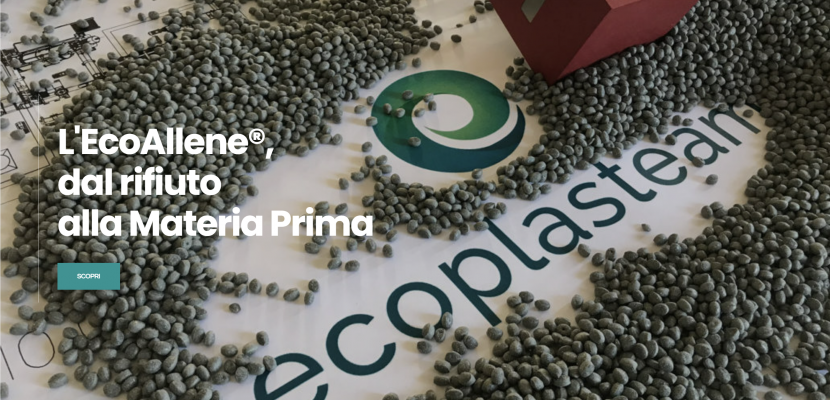
EcoAllene®, from Waste to Raw Material.

About this good practice
Ecoplasteam uses a process of working with the elements of PO-AL (plastic-aluminum), generating a third party, such as to be included within the processes of circular economy through the most innovative systems of recovery of polycouples.
Ecoplasteam is a company that through technology, development, sustainability implements processes for the end of waste of polycoupled materials, generating a new material, coming from the recycling of containers for beverages and food known as "tetrapak" of which only in Italy we collect over 1 billion and 400 million packs. These containers, composed of layers of cellulose, plastic and aluminum, until now disposed of in landfills, incinerated or partially recycled through the separation of the three components, with high costs, high energy consumption and poor quality of materials, finally find a line of sustainability.
The products are made with a production process covered by a patent, licensed by the Swiss company REPLAN Global Sagl which is the exclusive owner of the trademark, patent, technical expertise, processes useful for the realization of EcoAllene®.
The innovation lies in the production process of waste treatment: the two or more components (plastic film + metal film) are not separated, but are instead kept aggregated in the new formulation through the process under development.
Resources needed
N.A.
Evidence of success
Through technology, development, and sustainability, processes are implemented for the end-of-waste of polycarbonates, generating a new 100% recyclable material from the beverage and food containers known as "tetrapaks" of which more than 1.4 billion packages are collected in Italy alone. The innovation reduces recycling costs by allowing for significant competitiveness of the finished product at the marketing stage compared to the directly competing material, virgin petroleum-derived plastic.
Potential for learning or transfer
The good practice is an example of how entrepreneurship in the chemical sector a resilience tool is capable of driving the transition to a broader circular economy. The
company's policy aimed to develop innovative waste management and recovery system by putting in place a process of transforming waste materials that can generate significant economic benefits. This good practice can be useful for policymakers in the definition of regional waste management policies that establish new rules for the management of poly-bonded materials and set legally binding targets for their recycling in order to increase material recovery. New waste management policies will have to protect not only the environment but also the health of citizens by increasing more sustainable material reprocessing practices, making economies more sustainable and environmentally friendly.
Further information
Good practice owner
You can contact the good practice owner below for more detailed information.